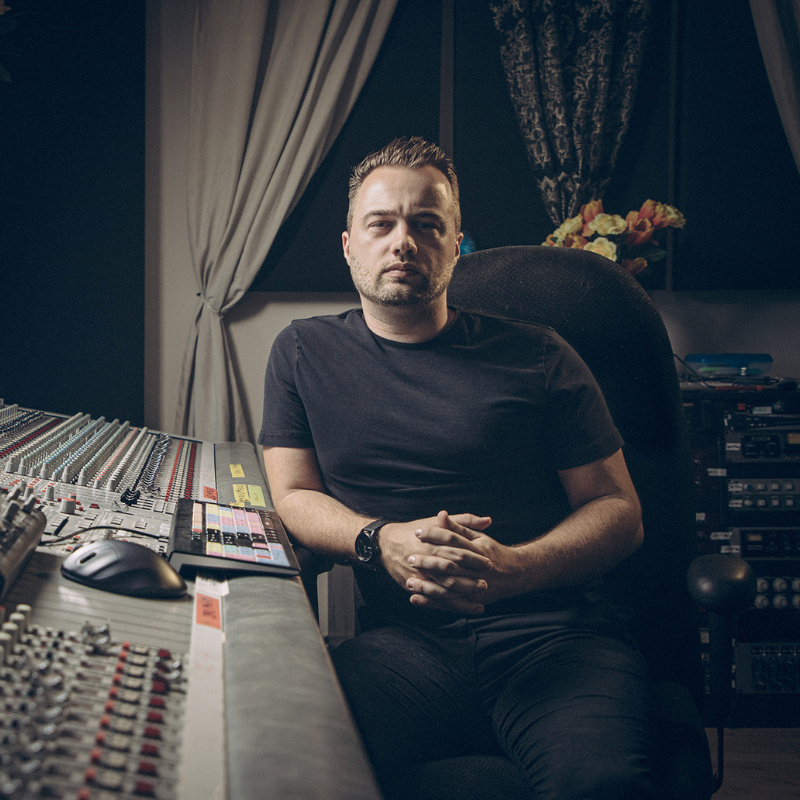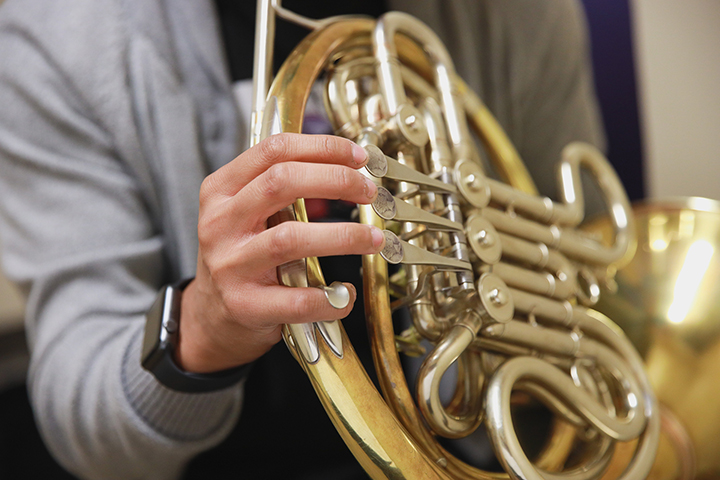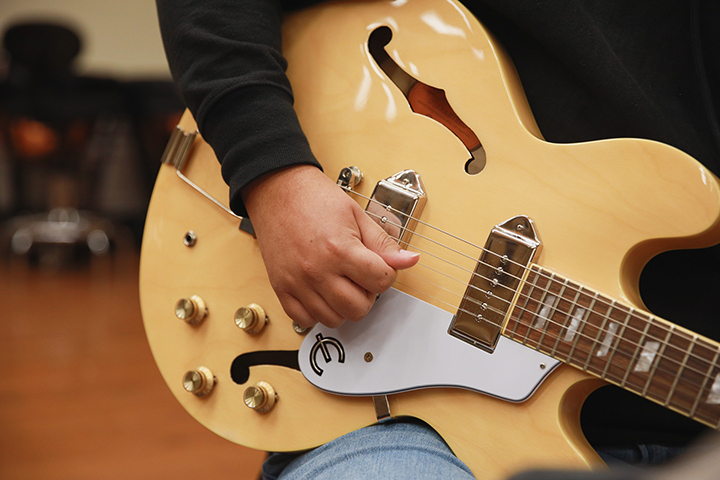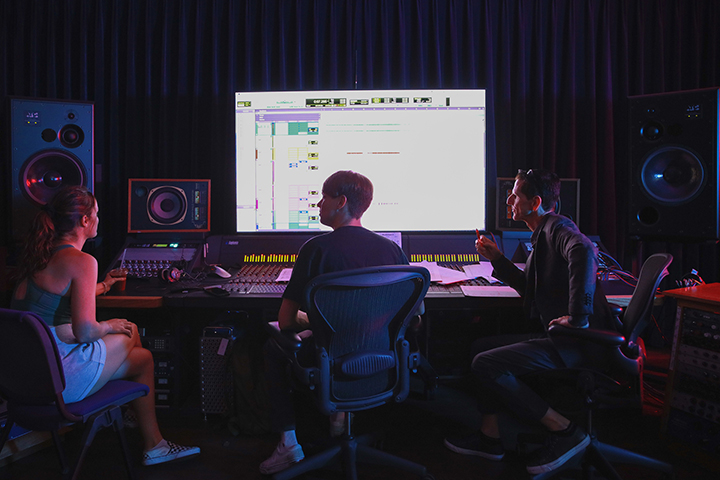
Composition for Stage and Screen, BM
Music is the background of modern life — and not just in movies and shows. Musical composers work in concert halls, schools, advertising agencies and production studios, among other places, and they need to know the very mechanics of music in order to create songs on a tight deadline.
Program Intro
In CBU's Composition for Stage and Screen program, students compose music in advanced production studios and learn from stylistically versatile faculty who are composers themselves. The CBU Collinsworth School of Performing Arts provides a unique and nurturing environment for future composers to develop the skills necessary to be successful in the world market.
Why Study Composition for Stage and Screen at CBU?
Aim for excellence
In every class, every rehearsal, every performance, students are held to higher standards that will encourage them to develop and expand their God-given gifts and ultimately share them with others.
Practice a contemporary conservatory style
CBU's music classroom style is often referred to as conservatory — intimate, challenging and rigorous. But unlike typical music conservatories that preserve the past with a traditional repertoire, CBU's music is forward-looking to engage both musicians and audiences in the contemporary enjoyment of the art.
Use state-of-the-art technology
CBU music students work hands-on with the latest music technology on both their personal Macbook Pro computers and in computer labs and classrooms located within the state-of-the-art Hawkins Music Building. Software for professional and audio production, sequencing and publishing quality notation are used each day in many of the core music courses.
What You'll Learn
Students in CBU's composition for stage and screen bachelor's program will learn:
- Applied Instrument: Perform a variety of stylistically appropriate musical works in
a primary applied area.
- Ensembles: Lead and collaborate with other musicians in large and small ensembles.
- Musicianship Ability: Exhibit comprehensive musicianship ability in various musical
contexts and skill sets.
- Critical Thinking: Think critically about music through analysis, listening and evaluation.
- Music History: Effectively communicate about the influences and practices of Western
art music, music of non-Western cultures and popular music traditions.
- Faith Integration: Articulate a personal philosophy related to the integration of
authentic faith and personal character in the life of a career musician.
- Compositional Techniques: Create original musical compositions that reflect knowledge
of compositional techniques and fundamental musical elements.
- Compositional Tools: Develop fluency in the use of diverse tools and technologies
for the creation, notation, and performance of original musical compositions.
- Composition Performance: Assemble and produce performances of original music for a variety of musical forces and performance mediums.
Program Details
MUS 253: Introduction to Music Composition
Composing for a variety of instruments and/or voices. Intended as an introduction to various techniques and styles of composition and particular concerns of each.
MUS 386: Audio Recording and Studio Techniques I
Introduction to analog and digital audio recording and ProTools recording software.
MUS 472: Orchestration
A study of the orchestral instruments; scoring for full orchestration or small ensembles. Students do extensive work in the computer lab working with notation software.

Glenn Pickett, D.M.A.
Professor of Music
Office Phone: 951-343-4500
E-mail: gpickett@calbaptist.edu
Office Location: Hawkins 217
Career Possibilities
Composition for stage and screen majors can apply their field of study to a variety of careers. Some careers listed below may require further education.
- Arranger
- Composer
- Performer
- Producer
- Music Director
- Musician
- Songwriter
Related Programs
Next Steps
Join our community. At CBU, you’ll be challenged to become an individual whose skills, integrity, and sense of purpose glorify God and distinguish you in the world.







